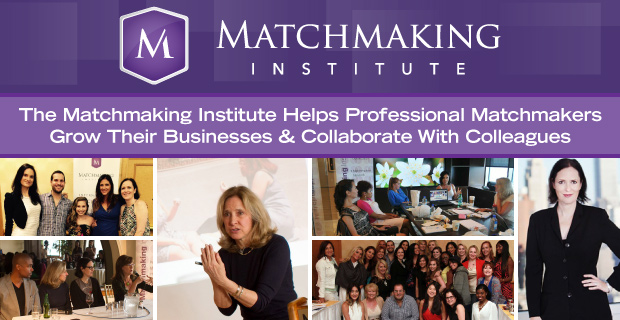THIS is embarrassing to admit, but for the sake of the greater good, here goes: I am a dating disaster.
The thought of meeting a stranger, sitting through a drink or meal, trying to be clever, makes me cranky. Think about the books that could be read while the other person drones on about his as-yet-unfinished divorce. Imagine the films that could be watched while he confuses the word “anecdote” with “antidote.” What a colossal waste of time.
More than one friend recommended an attitude adjustment.
“People can sense your intolerance,” they said. “They can smell negativity.”
A few suggested that I try something for the truly desperate: a dating coach. Unlike matchmakers, dating coaches do not arrange dates. Instead, they act as cheerleaders and advisers, pointing out less than helpful behavior.
The idea of a dating coach sounded ridiculous: Why should I entrust my romantic success to another person? What could a coach possibly tell me that I did not already know? But my dating life was not getting better, so I called Nancy Slotnick, a “love life manager” in New York City. Ms. Slotnick, a Harvard graduate, takes a no-nonsense approach to love.
“I treat it like a job hunt, but a fun one,” said Ms. Slotnick, 40, who has been coaching for five years and married for six. Ideally, she wants clients, most of whom are women in their 20s and 30s, to devote 15 hours a week to their search (surfing the Web counts for three hours, max). She also instructs women to turn on their “cab light.” “You know how you know when a cab is free because the light is on?” she asked. “That’s what you need to do with dating. You have to be in the game.”
I signed up for weekly one-hour phone sessions, for which I paid $500 a month, or $125 a session. I would devote my 15 hours a week, and we would have a weekly one-hour post-mortem.
It seemed like a lot of money and trouble to gather advice that my grandmother could probably give. But Ms. Slotnick seemed to offer good guidance, like learning how to balance assertion and aggression, and whether to kiss on the first date (yes, so the man knows you want to see him again).
Besides, she promised, “If you follow my advice you’ll meet your mate.”
No one can say for sure how many dating coaches exist, as the field is largely unregulated. Anyone can offer the services, although some coaches have degrees in psychology. The International Coach Federation, a professional association, sent out a questionnaire to 30,000 coaches worldwide. Of the 6,000 respondents, 20 percent said they specialized in some kind of relationship coaching.
“We have business coaches, dietitians, accountants, but we don’t have an expert for our love life?” said Lisa Clampitt, a dating coach and a founder of the Matchmaking Institute, which trains matchmakers in Manhattan. “It doesn’t make sense. It is really the single most important aspect in our life.”
Coaches have different methods — some work strictly over the phone, others provide in-person consultations, while others offer total immersion weekends, in which the coach lives with you and monitors your behavior. But their messages are similar: Stay positive! Be open-minded!
There are successes. In 2002, while grappling with a dating drought, Adele Berne, now 27, hired Ms. Slotnick. In the beginning, Ms. Berne, an assistant buyer at Juicy Couture, found the 15-hour-a-week rule daunting.
“I thought a relationship should be something that just kind of happens,” she recalled. “Nancy said you treat it like anything else you want to be successful at. You have to put the hours in. It changed my mentality.”
By the end of a year, she said, she was dating a “sweet and nice” man whom she would have never considered dating before meeting Ms. Slotnick. That relationship fell apart, but two years ago Ms. Berne met a man online, with whom she now lives. She credits Ms. Slotnick with her success: “I’m the one who took action, but without her inspiration, I could never have done it.”
Jillian Mazer, a 39-year-old technology consultant in Los Angeles, hired April Beyer, a relationship coach in Los Angeles, because she had not been involved with anyone for two years.
When the two met, Ms. Mazer was dressed in her typical attire: jeans, loafers and no makeup. This did not sit well with Ms. Beyer. “She said, ‘You need to make sure that what you’re presenting is who you want to be,’” Ms. Mazer recalled. “I wasn’t offended. It was really helpful.”
For six months, the two talked on the phone every two weeks for about 45 minutes (fee: $2,000). While Ms. Mazer is not yet in a relationship, she dates a lot, and, she says, she is “very optimistic.”
Some singles need a little more help. For them, there are coaches who not only advise but also join the hunt. Three months ago, Sean Frost, a 38-year-old real estate developer in Orange County, Calif., attended a singles event where he met Ranee A. Spina, 41, a dating coach. (She has never been married but said she “played married for seven years.”)
They met for a two-hour session in which she bombarded him with questions about his past relationships and the type of person he is seeking. They decided that he needed someone “intellectual, fun, easygoing but not with a mousy personality,” he said. For $95 an hour, the two of them attend nightclubs, wine tastings and other events.
“I’m looking for someone exceptional,” Mr. Frost said, “and I think you have to go through exceptional lengths to find them.”
Ms. Spina is quick to disagree with his choices. Sometimes he’ll see someone attractive, he said, and usually she is curvy, with big, blonde hair. “Ranee will say, ‘Does she look like an intellectual person?’”
David Wygant, a 45-year-old dating expert, will spend an entire weekend with his clients for about $5,000 to $10,000. That weekend “may mean an image makeover,” he said. “It may mean going out on the town and practicing flirting. It may even mean getting feedback on a simulated date. Everybody’s got a good personality. They just don’t let their personality out.”
Earlier this year Kristen Skaff, a 35-year-old lawyer outside Detroit, stumbled upon Mr. Wygant’s Web site and bought a few of his audio tapes.
“He’s very straight up: he doesn’t do the Stuart Smalley thing, which does not impress me,” Ms. Skaff said.
In April, she flew to Los Angeles to be part of a group “boot camp,” where she learned that she is shy, which often comes across as unfriendly. “He took a lot of time to tell you what you’re projecting energy wise — stuff you would never be able to self-diagnose,” she said.
In June, she flew Mr. Wygant to Detroit to help her further — for $10,000 and expenses. Afterward, he sent her an individualized MP3 with a list of his recommendations. “I burned it on a CD and play it all the time,” she said.
Now, she is dating, though she does not have a boyfriend. But she says friends have noticed a difference.
As for me, well, my quest was not as fruitful. I was very diligent. For three months I called Ms. Slotnick every week. She was insightful and engaging, and her advice was usually spot-on. The problem was me. Instead of devoting 15 hours to finding love, I gave it about 5. I was working, seeing my friends, traveling. In other words: I was busy.
Does that mean I’ll be single forever? I certainly hope not.
Here is what I do know: You can take a million courses and pay a million dollars, but that is no guarantee that you’ll ever find love. You may feel better about yourself — always a good thing — but that’s all. So, in the meantime, go out and live your life. And that advice is free.



